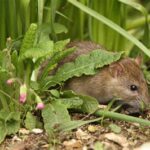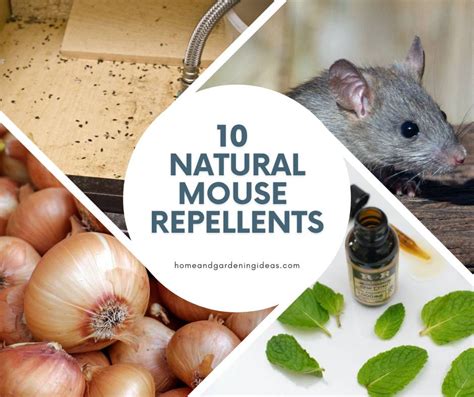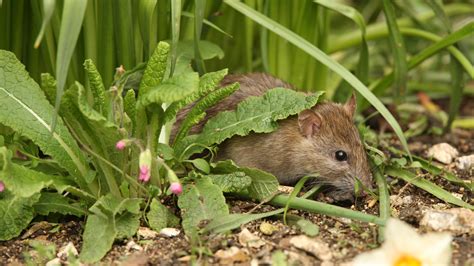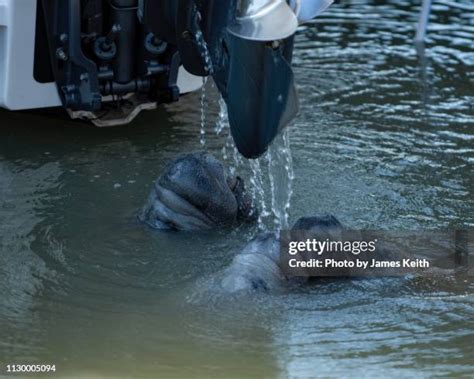
A thirsty Florida manatee charmed onlookers after helping itself to a refreshing drink from a boat’s hose in Clearwater, Florida, showcasing the animal’s resourcefulness amid increasing concerns about freshwater access.
The incident, captured in a now-viral video, highlights the challenges manatees face due to habitat loss and altered freshwater flows, prompting renewed calls for conservation efforts. The video depicts the large marine mammal nudging its snout against the boat’s spigot and drinking deeply, seemingly unfazed by the human presence. According to the boat’s owner, the manatee spent a considerable amount of time quenching its thirst, underscoring the severity of its need for freshwater.
“He just wanted fresh water,” the boat owner recounted. “He kept going up to the hose and drinking.”
This unusual encounter serves as a stark reminder of the environmental pressures affecting Florida’s beloved sea cows. Manatees, often referred to as “sea cows” due to their herbivorous diet and gentle nature, are facing increasing threats from habitat degradation, boat strikes, and fluctuations in freshwater availability. The incident in Clearwater underscores the importance of ongoing conservation efforts to protect these gentle giants and their fragile ecosystem.
The Florida Fish and Wildlife Conservation Commission (FWC) has been actively involved in manatee conservation efforts for decades. These initiatives include habitat restoration, boat speed zone enforcement, and rescue and rehabilitation programs for injured or distressed animals. However, challenges remain as Florida’s human population continues to grow, placing additional strain on natural resources and wildlife habitats.
The viral video has sparked widespread interest in manatee conservation, with many viewers expressing concern for the animal’s well-being and a desire to learn more about the challenges facing these iconic creatures. Conservation groups are using the video as an opportunity to raise awareness about the importance of protecting manatee habitats and ensuring access to freshwater sources.
“This manatee’s behavior is a clear indication that they are struggling to find adequate freshwater sources,” explained Dr. James Reynolds, a marine mammal biologist specializing in manatee conservation. “We need to address the underlying issues that are impacting their habitat and limiting their access to this essential resource.”
The incident in Clearwater also highlights the importance of responsible boating practices in manatee habitats. Boaters are encouraged to be vigilant and observe posted speed zones to avoid collisions with manatees. Additionally, boaters should avoid disturbing manatees or altering their natural behavior.
The Clearwater manatee’s “boat heist” is a lighthearted moment with a serious underlying message: Florida’s manatees need our help. By supporting conservation efforts, practicing responsible boating habits, and raising awareness about the challenges facing these gentle giants, we can help ensure their survival for generations to come.
The situation draws attention to the broader ecological challenges affecting manatees in Florida. Factors such as red tide blooms, seagrass die-offs, and increasing human development are all contributing to the decline in manatee populations. These challenges require a multifaceted approach that involves government agencies, conservation organizations, and individual citizens working together to protect these iconic creatures.
The FWC urges the public to report any sightings of distressed or injured manatees to its hotline. By promptly reporting these incidents, individuals can help ensure that these animals receive the care they need. The hotline also serves as a valuable tool for monitoring manatee populations and tracking the effectiveness of conservation efforts.
In addition to reporting distressed manatees, the public can also support conservation efforts by donating to reputable organizations that are dedicated to manatee protection. These organizations use donations to fund research, rescue and rehabilitation programs, and habitat restoration projects.
The Clearwater manatee’s thirst-quenching adventure serves as a poignant reminder of the interconnectedness of humans and wildlife. By recognizing the challenges facing manatees and taking action to protect them, we can help ensure the health and resilience of Florida’s coastal ecosystems.
The Florida manatee (Trichechus manatus latirostris) is a subspecies of the West Indian manatee and is primarily found in the warm coastal waters of Florida. They are gentle giants, averaging about 10 feet in length and weighing between 800 and 1,200 pounds. Manatees are herbivores, feeding on seagrass and other aquatic vegetation. They play an important role in maintaining the health of coastal ecosystems by grazing on vegetation and preventing it from overgrowing.
Manatees are listed as a threatened species under the Endangered Species Act. While their populations have rebounded in recent years, they continue to face a number of threats, including habitat loss, boat strikes, and water pollution. Conservation efforts are essential to ensure the long-term survival of these iconic creatures.
The incident in Clearwater underscores the importance of freshwater for manatees. While manatees are marine mammals and can survive in saltwater, they need access to freshwater to maintain proper hydration. They obtain freshwater by drinking from rivers, springs, and other sources. When freshwater sources are limited or contaminated, manatees can become dehydrated and stressed.
The availability of freshwater for manatees is influenced by a number of factors, including rainfall patterns, water management practices, and human development. As Florida’s population continues to grow, the demand for freshwater is increasing, placing additional strain on manatee habitats.
Conservationists are working to address the issue of freshwater availability for manatees by restoring natural springs, improving water management practices, and educating the public about the importance of water conservation. These efforts are essential to ensure that manatees have access to the freshwater they need to survive.
The viral video of the Clearwater manatee has generated a great deal of interest in manatee conservation. Many people are now wondering what they can do to help protect these gentle giants. There are a number of ways to get involved, including supporting conservation organizations, practicing responsible boating habits, and educating others about the challenges facing manatees.
By working together, we can help ensure that Florida’s manatees continue to thrive in their natural habitat. The story of the Clearwater manatee’s “boat heist” is a reminder that even small actions can have a big impact on the lives of these iconic creatures.
The increasing frequency of such incidents, where manatees are seen actively seeking freshwater from unconventional sources like boat hoses, golf course ponds, and residential taps, paints a worrying picture. Experts suggest that these behaviors are indicative of a larger problem: the degradation and reduced accessibility of their natural freshwater habitats.
Furthermore, the altered salinity levels in some of their traditional habitats, caused by human interference and climate change, are pushing manatees to explore new, often riskier, avenues for hydration. This increasing reliance on human-provided water sources puts them at greater risk of boat strikes, entanglement in fishing gear, and exposure to harmful pollutants.
The Florida Fish and Wildlife Conservation Commission (FWC) and other conservation organizations are actively involved in several initiatives aimed at improving freshwater availability for manatees. These include:
-
Spring Restoration Projects: These projects focus on restoring the natural flow and quality of freshwater springs, which are vital sources of freshwater for manatees. The restoration process involves removing invasive vegetation, stabilizing shorelines, and reducing nutrient pollution.
-
Water Management Planning: The FWC works with local and regional water management districts to develop water management plans that take into account the needs of manatees. These plans aim to balance the water needs of humans and wildlife, ensuring that manatees have access to adequate freshwater supplies.
-
Public Education Campaigns: The FWC conducts public education campaigns to raise awareness about the importance of water conservation and the impact of human activities on manatee habitats. These campaigns encourage people to reduce their water consumption, use fertilizers responsibly, and avoid polluting waterways.
-
Designated Manatee Refuges: Establishment and maintenance of manatee refuges, areas where boat speeds are restricted and development is limited to provide safe and undisturbed habitats.
The role of seagrass in manatee survival cannot be overstated. Seagrass beds serve as the primary food source for manatees, and their decline has a direct impact on manatee populations. Seagrass die-offs are often caused by pollution, nutrient runoff, and boat propeller scarring. These factors reduce the amount of sunlight that reaches the seagrass, hindering its growth and ultimately leading to its demise.
Restoring seagrass beds is a crucial aspect of manatee conservation. Efforts to restore seagrass beds include reducing pollution, implementing best management practices for agriculture and development, and educating boaters about the importance of avoiding seagrass areas.
The FWC and other organizations are also working to identify and protect important seagrass habitats. These areas are designated as critical habitat and are subject to special regulations to ensure their protection.
Boat strikes are a major threat to manatees, causing serious injuries and fatalities. Manatees are slow-moving animals and often swim near the surface of the water, making them vulnerable to collisions with boats.
To reduce the risk of boat strikes, the FWC has established boat speed zones in areas where manatees are known to congregate. These zones require boaters to slow down and be more vigilant, reducing the likelihood of collisions.
The FWC also conducts public education campaigns to educate boaters about the importance of responsible boating practices in manatee habitats. These campaigns emphasize the need to be aware of surroundings, observe posted speed zones, and avoid disturbing manatees.
In addition to boat speed zones and public education, the FWC also investigates boat strikes and takes enforcement action against boaters who violate manatee protection laws.
The Clearwater incident has prompted many people to ask what they can do to help protect manatees. Here are some simple steps that individuals can take:
-
Report Distressed Manatees: If you see a manatee that is injured, entangled, or otherwise in distress, report it to the FWC hotline immediately.
-
Practice Responsible Boating: Obey posted speed zones, be aware of your surroundings, and avoid disturbing manatees.
-
Reduce Water Consumption: Conserve water at home and in your yard to reduce the demand on freshwater resources.
-
Dispose of Waste Properly: Dispose of trash and other waste properly to prevent pollution from entering waterways.
-
Support Conservation Organizations: Donate to reputable organizations that are dedicated to manatee protection.
-
Educate Others: Share information about manatees and the challenges they face with your friends, family, and community.
The long-term survival of Florida’s manatees depends on the collective efforts of government agencies, conservation organizations, and individual citizens. By working together, we can help ensure that these gentle giants continue to thrive in their natural habitat. The “boat heist” in Clearwater serves as a powerful reminder of the importance of protecting manatees and their fragile ecosystem.
Furthermore, the incident draws attention to the need for sustainable development practices in Florida. As the state’s population continues to grow, it is essential to ensure that development is done in a way that minimizes its impact on natural resources and wildlife habitats. This includes implementing stricter regulations on construction, promoting green building practices, and preserving open spaces.
The Florida manatee population has faced numerous challenges in recent years, including unprecedented mortality events. These events, often linked to starvation due to seagrass loss in the Indian River Lagoon, have raised serious concerns about the long-term health of the population.
The FWC and other organizations have responded to these challenges by implementing emergency feeding programs and rescuing and rehabilitating distressed manatees. However, these efforts are only temporary solutions. The underlying issues of seagrass loss and habitat degradation must be addressed to ensure the long-term survival of the species.
The Clearwater incident underscores the importance of addressing the root causes of manatee mortality. By restoring seagrass beds, improving water quality, and reducing human impacts on manatee habitats, we can create a more sustainable future for these iconic creatures.
The manatee’s adaptability and resourcefulness, as demonstrated by its seeking water from a boat hose, offers a glimmer of hope. However, this should not be interpreted as a sign that the species is thriving. Instead, it should serve as a call to action, urging us to intensify our conservation efforts and address the underlying issues that are threatening manatee populations.
The incident also highlights the importance of monitoring manatee behavior and health. By tracking manatee movements, identifying potential threats, and assessing their overall health, scientists can gain valuable insights into the factors that are affecting their survival.
This information can be used to inform conservation strategies and ensure that resources are allocated effectively. The FWC and other organizations rely on citizen scientists to help monitor manatee populations. By reporting sightings of manatees and participating in volunteer monitoring programs, individuals can contribute to the conservation of these iconic creatures.
The Clearwater manatee’s “boat heist” is a memorable event that has captured the hearts of people around the world. But it is also a reminder of the serious challenges facing manatees in Florida. By understanding these challenges and taking action to address them, we can help ensure that manatees continue to thrive in their natural habitat for generations to come.
The media coverage of the Clearwater incident has played a crucial role in raising awareness about manatee conservation. By sharing the story of the thirsty manatee with a wide audience, the media has helped to educate people about the challenges facing these gentle giants and inspire them to take action.
The viral video of the incident has been viewed millions of times, generating a great deal of interest in manatee conservation. This increased awareness can lead to greater support for conservation efforts and more effective protection of manatee habitats.
The media also plays a vital role in holding government agencies and conservation organizations accountable for their actions. By reporting on manatee conservation efforts and highlighting any shortcomings, the media can help ensure that resources are being used effectively and that manatees are receiving the protection they need.
The Clearwater manatee’s “boat heist” is a reminder of the power of media to raise awareness and inspire action. By continuing to share stories about manatees and the challenges they face, the media can help ensure that these iconic creatures continue to thrive in their natural habitat.
The future of Florida’s manatees depends on our collective commitment to conservation. By working together, we can address the challenges facing these gentle giants and create a more sustainable future for them and for the ecosystems they inhabit.
Frequently Asked Questions (FAQ)
-
Why was the manatee drinking from a boat hose?
- The manatee was seeking freshwater. Manatees, while marine mammals, require access to freshwater for hydration. The incident suggests that natural freshwater sources may be limited or inaccessible in the area, leading the manatee to seek it from an unconventional source like a boat hose. “He just wanted fresh water,” the boat owner stated. “He kept going up to the hose and drinking.”
-
What are the main threats to manatees in Florida?
- The primary threats to manatees include habitat loss and degradation, boat strikes, entanglement in fishing gear, and fluctuations in freshwater availability. Red tide blooms and seagrass die-offs also pose significant risks to manatee populations.
-
What is being done to help manatees?
- The Florida Fish and Wildlife Conservation Commission (FWC) and other organizations are involved in various manatee conservation efforts. These include habitat restoration projects, boat speed zone enforcement, rescue and rehabilitation programs for injured or distressed animals, spring restoration projects, water management planning, and public education campaigns.
-
How can I help protect manatees?
- You can help protect manatees by reporting distressed manatees to the FWC hotline, practicing responsible boating habits (obeying speed zones and avoiding disturbing manatees), reducing water consumption, disposing of waste properly, supporting conservation organizations, and educating others about manatees and the challenges they face.
-
What is the Florida Fish and Wildlife Conservation Commission (FWC) doing to address the issue of freshwater availability for manatees?
- The FWC is working to restore natural springs, improve water management practices, and educate the public about the importance of water conservation. They are also working with local and regional water management districts to develop water management plans that take into account the needs of manatees and ensure they have access to adequate freshwater supplies.









